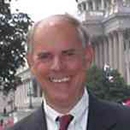Academic Editors
The following people constitute the Editorial Board of Academic Editors for PeerJ. These active academics are the Editors who seek peer reviewers, evaluate their responses, and make editorial decisions on each submission to the journal. Learn more about becoming an Editor.

Marcin Maciej Grynberg
Assistant Professor in The Institute of Biochemistry and Biophysics Polish Academy of Sciences, Warsaw, Poland. Graduate from The University of Warsaw. Former post-doc at The Burnham Institute, La Jolla, CA. Co-founder of the social scientist movement Citizens of Academia.

Frank Onderi Masese
Dr. Frank Masese is Senior Lecturer in the Department of Fisheries and Aquatic Science at the University of Eldoret.
He is an aquatic ecologist with broad interests ranging from biodiversity, nutrient cycling, food webs and biomonitoring in streams and rivers.

Szymon M Drobniak
I’m a scientist working at the Jagiellonian University in Kraków (Poland) and the University of New South Wales in Sydney (Australia). I study biological evolution, with particular interest in quantitative genetics, phenotypic plasticity, evolution of colour and colourful signals, and sexual selection. In my work, I use extensively complex statistical tools and multi-level modelling. Apart from empirical studies, I conduct meta-analyses and comparative analyses, synthesising existing evidence and developing new ways of summarizing empirical evidence.

Grant B McClelland
Professor of Biology at McMaster University, President of the Canadian Society of Zoologists (2019-2020).
My research focuses on the ontogeny, phenotypic plasticity and evolution of muscle metabolism - important for locomotion, thermogenesis, and whole-body metabolic homeostasis. I use mechanistic and evolutionary physiology approaches, and take advantage of "experiments in nature" by studying species that thrive in extreme environments such as high altitude. I do applied research on the impacts of changing temperature, low oxygen, and pollution on the physiology of fishes.

Aaron T Scanlan
Dr Aaron Scanlan is an Associate Professor in Exercise and Sport Sciences at Central Queensland University Australia. Aaron is the Lead for the Exercise and Sports Science Rehabilitation Research Cluster and an Exercise and Sports Science Australia (ESSA) Accredited Exercise Scientist and Accredited Sport Scientist. Aaron's research is multi-dimensional, exploring various aspects of exercise and sport with particular interest in applied topics among team sports. Aaron is specifically recognised as a world leader in basketball research and has collaborated extensively with researchers from various countries as well as industry bodies at regional, national, and international levels.

Xiaotian Tang
Dr. Xiaotian Tang is now an assistant professor (ZJU100 Young Professor) at Zhejiang University. He was a postdoctoral associate at Yale School of Medicine. His research interests include vector-borne diseases of animals and plants, and arthropod-pathogen-host interactions. He is also interested in evolutionary biology of arthropods.
He has over 40 publications in high-quality peer-reviewed journals, including Cell, PLOS Biology, eLife, Cell Reports, and Science Translational Medicine. He has served as academic or review editor for 4 journals and reviewer for over 20 journals.

Rita M Zrenner
Researcher at the Leibniz-Institute of Vegetable and Ornamental Crops (IGZ) performing functional examination of plant physiological processes and the underlying metabolic signal transduction pathways that control plant growth and secondary metabolite production in relation to plant health and environmental stimuli.

John J. Stegeman
Sr. Scientist and former Head of Biology and Watson Chair, Woods Hole Oceanographic Institution. Director, NSF/NIH Woods Hole Center for Oceans and Human Health. Editorial Boards of several journals, former Editor-in-Chief, Aquatic Toxicology. Honorary Doctorate from Goteborg University.

Chris M Yeager
I am a broadly-trained microbiologist with a research background in molecular biology, microbial ecology, genomics and biogeochemistry. Over the past 12 years I have served as a Staff Scientist within the Department of Energy National Laboratory system, first in the Environmental Biotechnology Section at Savannah River National Laboratory (2005-2011) and then in the Biosciences and Chemistry Divisions at Los Alamos National Laboratory (2011-current). As a staff scientist, I developed and managed a variety of research programs, focusing on microbial communities involved in processes relevant to climate change, fate and transport of radionuclides in the environment and bioenergy production. I received a BS degree from the University of Wyoming in Biochemistry, after which I worked as a laboratory technologist at the University of Utah and the VA medical center in Salt Lake City, UT with a team investigating the molecular underpinnings of diabetes. I received my doctorate in Cellular and Molecular Biology at Oregon State University in 2001 under Drs. Daniel Arp and Peter Bottomley investigating biodegradation of toxic compounds, such as trichloroethylene and toluene, by soil microorganisms. I completed postdoctoral training (2001-2004) at Los Alamos National Laboratory under Dr. Cheryl Kuske examining how the microorganisms that build and maintain biocrusts in soils of arid environments might respond to climate change.

Mark C. Benfield
Professor in the Department of Oceanography and Coastal Sciences, College of the Coast and Environment at Louisiana State University. Adjunct (Guest Investigator) in the Biology Department at the Woods Hole Oceanographic Institution. Member and Past-Chair of the ICES Working Group on Zooplankton Ecology, member of the ICES Working Group on Integrated Morphological and Molecular Taxonomy, Director of the Gulf SERPENT Project. Ph.D. (Wildlife and Fisheries Sciences) from Texas A&M University.

Fabio TS Nogueira
Associate professor of Plant Molecular Biology and coordinator of the graduate program Plant Cell and Molecular Biology, University of Sao Paulo, Brazil. President, Institutional Biosafety Committee, University of Sao Paulo; Past President, Environmental Ethics in Research Committee, University of Sao Paulo.

Hao Chen
Dr. Chen's group uses behavioral genetics methods to study addiction related traits. The main behavioral models are intravenous nicotine self-administration and oral oxycodone self-administration in rats. Another area of focus is the identification of genomic variants in inbred strains of rats. A third area of research is the design of open source instruments and software for measuring rat behavior.

